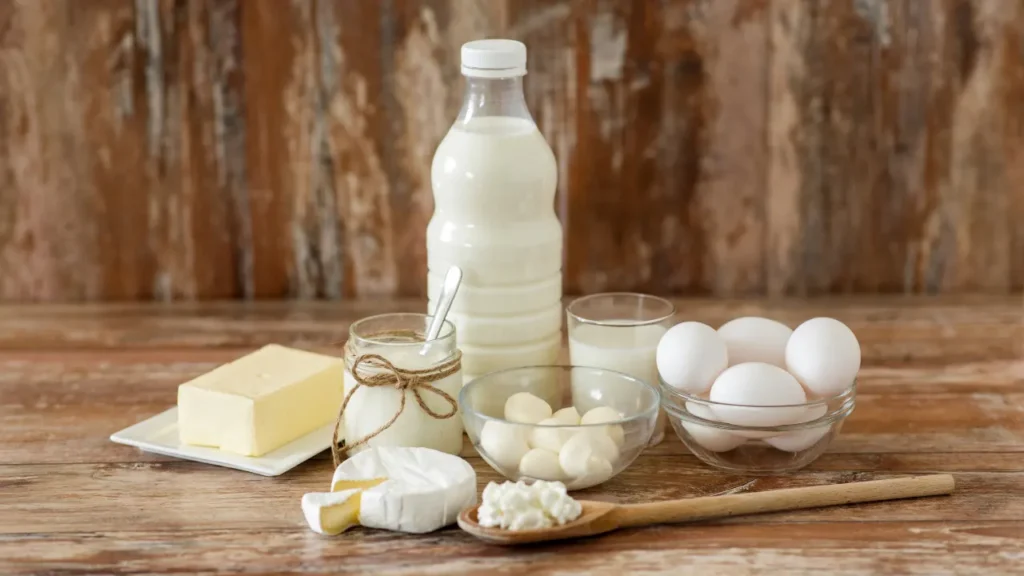The body spontaneously manufactures the non-essential amino acid alpha-alanine, also referred to as L-alanine. It is one of the 20 amino acids that go into making proteins, but it’s also a dietary supplement. Numerous physiological systems, such as protein synthesis, the immune system, and energy production, depend on alpha-alanine. This article will cover the characteristics of alpha-alanine, its advantages for health, the best dosage, side effects, possible drug interactions, and other pertinent details on the safe use of this dietary supplement.
You May Also Like:
5 Things to Consider When Choosing the Best Mushrooms for Mental Health
Alpha-Alanine: Benefits, Dosage, Side Effects, Drug Interactions, And Other Important Information is an original (NootropicsPlanet) article.
Nature of Alpha-Alanine
The body creates alpha-alanine, a non-polar, non-essential amino acid, from other amino acids. It is a component of proteins and is present in various foods, such as meat, fish, dairy products, and eggs. Alpha-alanine is also offered as a dietary supplement as powder or pills.
Health Benefits of Alpha-Alanine
Alpha-alanine provides a number of health advantages, including:
- Increasing muscular endurance: Because of its capacity to increase muscular endurance, alpha-alanine is a common component in pre-workout supplements. It functions by raising the amount of carnosine in the muscles, which postpones the onset of exhaustion during exercise and buffers the accumulation of lactic acid.
- Lessening muscular soreness: Alpha-alanine has been demonstrated to reduce soreness and enhance exercise performance, particularly during high-intensity, brief-duration exercises like weightlifting and sprinting.
- Increasing mental focus: Studies have indicated that alpha-alanine increases mental clarity and decreases mental weariness. It raises the brain’s concentrations of neurotransmitters, including dopamine and serotonin, which can enhance mood and cognitive function.
- Immune system stimulation: Alpha-alanine contributes to the formation of antibodies necessary for a robust immune system. Additionally, it helps the body respond better to inflammation and infection.

Chemistry of Alpha-Alanine
An amino acid, or alpha-alanine, is a substance used to make proteins. It is categorized as a non-essential amino acid because the body can produce it independently, and it has the chemical formula C3H7NO2. Serine and cysteine are two amino acids the liver uses to make alpha-alanine. Additionally, it can be acquired from diet by ingesting foods high in protein, including meat, fish, and eggs.
The alpha-alanine structure is relatively straightforward. It consists of an alpha carbon in the center, which is connected to a hydrogen atom, a carboxyl group, an amino group, and a methyl group. Alpha-alanine is a chiral molecule since the amino and carboxyl groups are situated on opposing sides of the alpha carbon.
The function of alpha-alanine in carnosine synthesis is an intriguing aspect of this amino acid. A dipeptide composed of beta-alanine and histidine, carnosine plays a number of vital roles in the body. Because it can combine with beta-alanine to create carnosine synthase, the enzyme that catalyzes the synthesis of carnosine, alpha-alanine, is implicated in the manufacture of carnosine.
Physiological Mechanism of Action
Alpha-alanine’s physiological effects on the body and brain are complicated and include numerous routes. Some of the main mechanisms of action are as follows:
- Production of carnosine: Carnosine is a dipeptide abundant in muscle tissue and partly produced by alpha-alanine. During exercise, carnosine can help delay the onset of weariness by buffering the development of lactic acid.
- Synthesis of neurotransmitters: Alpha-alanine contributes to producing dopamine and serotonin, two neurotransmitters that can enhance mood and cognitive performance.
- Antioxidant activity: Alpha-alanine contains antioxidant properties that may aid in preventing oxidative damage and inflammation in the body.
- Support for the immune system: Alpha-alanine contributes to the synthesis of antibodies, which are necessary for a strong immune system. Additionally, it helps the body respond better to inflammation and infection.

Optimal Dosage of Alpha-Alanine
The best amount of alpha-alanine to take depends on the individual’s demands and objectives. For optimal athletic performance, the dosage is 3-5 mg daily, given 30–60 minutes before activity. For mental clarity and cognitive function, the recommended dosage is 300–600 mg per day, administered in the morning or early afternoon.
Side Effects of Alpha-Alanine
When used in the recommended dosages, alpha-alanine is usually regarded as safe. However, certain individuals may have adverse effects, such as:
- Tingling or flushing: Taking alpha-alanine in large dosages can make you feel tingly or flushed. This is a benign side effect known as paresthesia.
- Stomach upset: Some people may have stomach trouble or diarrhea when taking alpha-alanine, especially if it is taken in high quantities or on an empty stomach.
- Insomnia: Some people may experience insomnia or trouble falling asleep due to alpha-alanine. This is more likely to happen when taking big doses late in the day.
Potential Substance Interactions with Alpha-Alanine
The following compounds may interact with alpha-alanine:
- Creatine: As a pre-workout supplement, creatine and alpha-alanine are frequently combined. Together, they increase muscular endurance and lessen tiredness.
- Caffeine: As a pre-workout supplement, alpha-alanine and caffeine are frequently combined. They enhance mental clarity and energy levels in concert.
- Beta-alanine: Both beta-alanine and alpha-alanine contribute to carnosine synthesis in muscle tissue. Although each has a unique mode of action, they are frequently used as a pre-workout supplement.

Best Responsible Uses of Alpha-Alanine
When taken as directed, alpha-alanine is a safe and beneficial dietary supplement. Here are some more pointers for using alpha-alanine responsibly:
- Take the dosage as advised: Take alpha-alanine just as directed to prevent potential adverse effects. It’s crucial to remember that better outcomes don’t always result from larger doses.
- Consume alpha-alanine with food: Doing so can lower your risk of experiencing diarrhea or upset stomach.
- Speak with a medical professional: Before using alpha-alanine or any other nutritional supplement, it is crucial to speak with a medical expert if you have any underlying medical conditions or are taking medication.
- Select a renowned brand: When buying alpha-alanine, select a reputed brand that has undergone independent quality and purity testing.
- Combine alpha-alanine with a healthy lifestyle: To get the best effects, combining alpha-alanine with a healthy diet and way of life is vital. Alpha-alanine is not a miracle supplement.
Alpha-Alanine:
Conclusion
While alanine may not be marketed as a supplement for specific health benefits, it is naturally present in many protein-rich foods, such as meat, poultry, fish, eggs, and dairy products. Additionally, due to its involvement in protein metabolism and energy production, it is often included in sports supplements designed to support muscle growth and performance. Although alpha-alanine (alanine) may not directly offer standalone health benefits, its role in protein synthesis, energy production, immune function, blood sugar regulation, and central nervous system support underscores its importance for overall health and well-being. Incorporating alanine-rich foods into a balanced diet can help ensure an adequate intake of this non-essential amino acid.

References:
- Citrulline malate enhances athletic anaerobic performance and relieves muscle soreness. . Link: https://journals.lww.com/nsca-jscr/Abstract/2010/05000/Citrulline_Malate_Enhances_Athletic_Anaerobic.9.aspx
- Effect of beta-alanine supplementation on muscle carnosine concentrations and exercise performance. . Link: https://pubmed.ncbi.nlm.nih.gov/20091069/
- Beta-alanine improves sprint performance in endurance cycling. Link: https://journals.lww.com/acsm-msse/Abstract/2009/04000/Beta_Alanine_Improves_Sprint_Performance_in.19.aspx
Important Note: The information contained in this article is for general informational purposes only, and should not be construed as health or medical advice, nor is it intended to diagnose, prevent, treat, or cure any disease or health condition. Before embarking on any diet, fitness regimen, or program of nutritional supplementation, it is advisable to consult your healthcare professional in order to determine its safety and probable efficacy in terms of your individual state of health.
Regarding Nutritional Supplements Or Other Non-Prescription Health Products: If any nutritional supplements or other non-prescription health products are mentioned in the foregoing article, any claims or statements made about them have not been evaluated by the U.S. Food and Drug Administration, and such nutritional supplements or other health products are not intended to diagnose, treat, cure, or prevent any disease.


